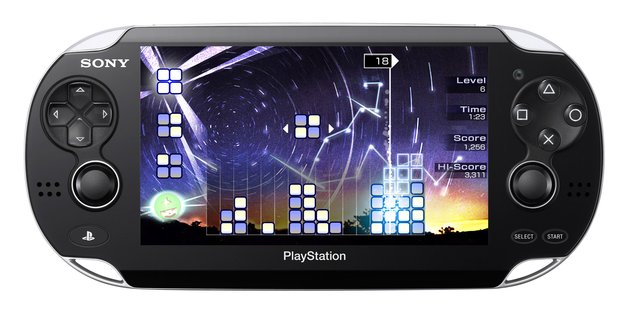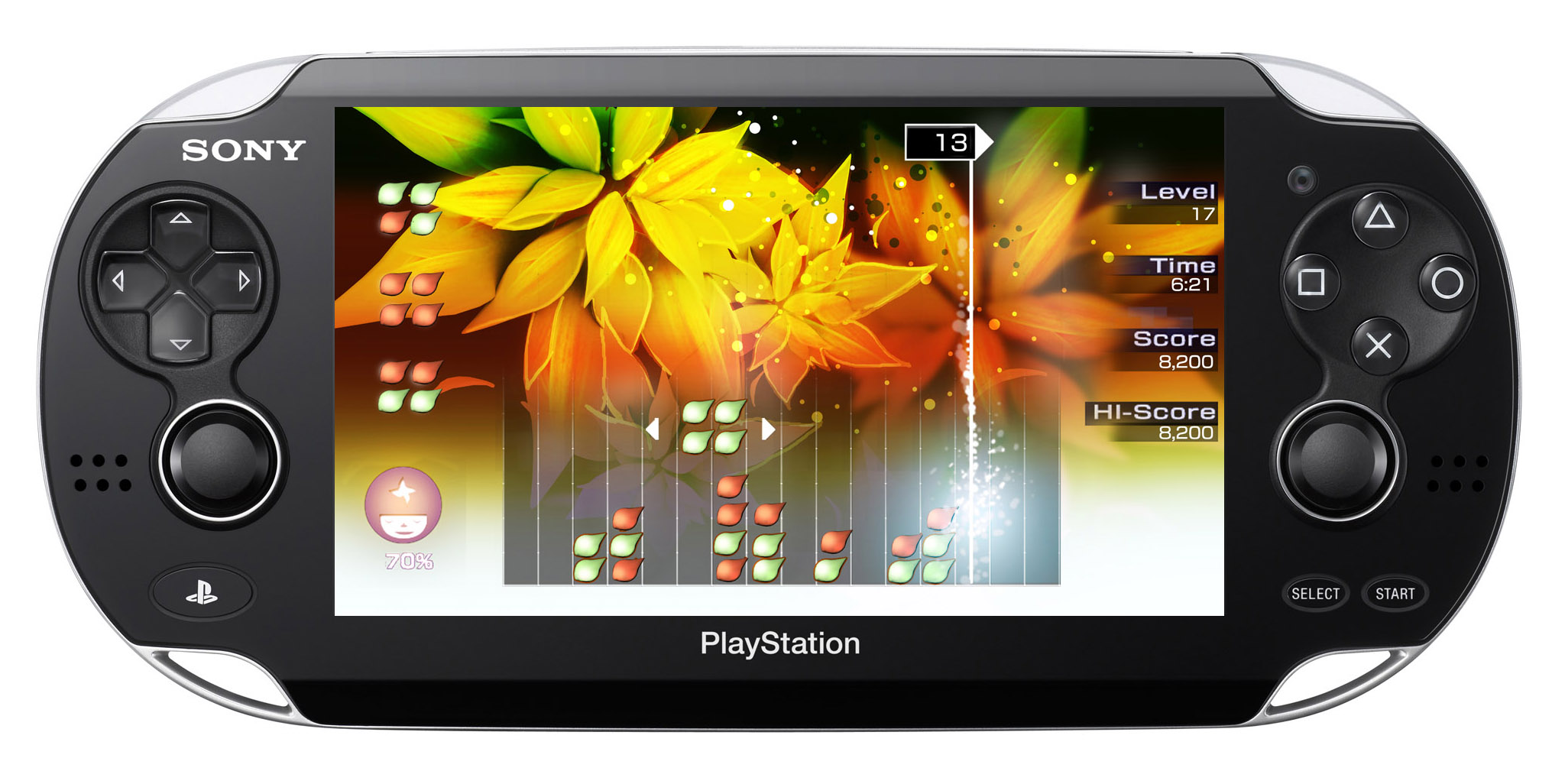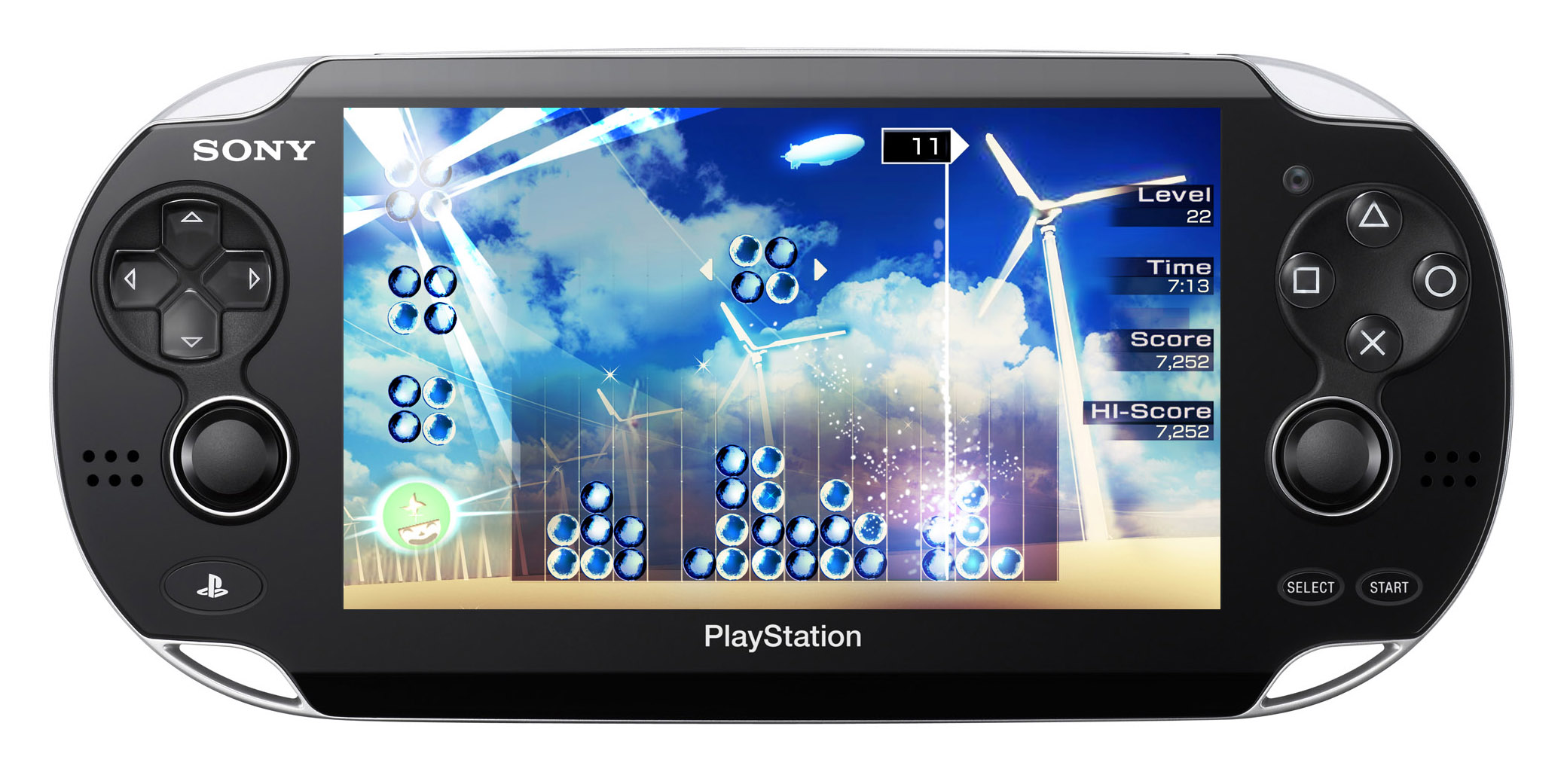TGS 2011: Lumines Electronic Symphony hands-on preview
Lumines lends its power to another launch
With PS Vitas in short supply at this year's TGS, we were pleased to be able to sit down in a quiet spot off the show floor and play the TGS demo of Lumines: Electronic Symphony. From our brief time with the game, it looks like Electronic Symphony is poised to be the puzzle game for Vita as the original Lumines was for PSP.

Creating a follow-up to such a simple, well-designed, well-balanced block puzzle is tough. Besides updating the visuals and sound, what do you do? Well, Electronic Symphony obviously has upped the ante on the overall presentation, but it adds a few elements to the gameplay without disrupting the core mechanics or the flow of the game.
A quick primer on Lumines: it's a falling block puzzle where squares of four blocks fall one at a time from the top of the screen, and you must match same-colored squares of four or more (there are only two colors of blocks on any given level). Blocks clear each time the sweeper line passes over them, and you get more points the more blocks you can clear in a single sweep. It's from Rez creator Tetsuya Mizuguchi though, so you know it's more than just a falling block puzzle – there's a music and rhythm element too. The sweeper line, called the timeline, moves to the tempo of the music in each level (so it moves slower during a slow song), and of course the visuals also pulsate and change in rhythm with the music too, the intensity of which escalates as your score climbs higher and higher.

So what's new in Electronic Symphony? For starters, it adds two new special blocks, called the chain block and the shuffle block. The chain block clears all blocks of the same color that it touches and any other blocks that are adjacent to those blocks within the same cluster. So if you have a long snaking line of blocks that touch but don't form any squares, it will clear them all. The shuffle block does exactly what it sounds like it does – it randomly shuffles all the blocks within a cluster (clusters are any group of blocks that all touch each other on the field). This might sound bad, but in a pinch it can actually be a lifesaver. If your screen is almost full and you're in danger of a game over, a shuffle can potentially create a bunch of matches and clear more room on the screen.
Avatars also play a bigger role this time too, and the avatar you choose determines what kind of special power-up you get. As you play, a meter fills that allows you to use an avatar power by tapping the icon in the lower left corner – in the demo, using the avatar power gave us a random special block. You can fill up the meter faster by tapping your fingers against the Vita's back touch pad, which totally works, but feels a bit silly and seems like an unnecessary use of the hardware's features. At the very least, you can ignore it if you'd like.

From the brief demo alone, it's clear that Electronic Symphony takes full advantage of the new hardware, and the newly 3D visuals look absolutely amazing on the Vita screen. As our score grew and the visuals got more and more intense, it was impossible not to slow down and admire how gorgeous it looks in motion. Like Mizuguchi's other works, it really plays with different visual aspects creatively, like opacities and textures, dynamic lighting, and particle effects (we're told there's a skin with a popcorn popping theme, which sounds like a satisfying visual). And with over 50 skins confirmed for the game, there's a lot more to look forward to. Expect tons of great music too, with licensed tracks "Hey Boy Hey Girl" by The Chemical Brothers and "4 AM" by Kaskade.
Lumines: Electronic Symphony is planned as a launch title for North America and Europe, so look for more info in the coming months.
Sign up to the GamesRadar+ Newsletter
Weekly digests, tales from the communities you love, and more
Sep 16, 2011



